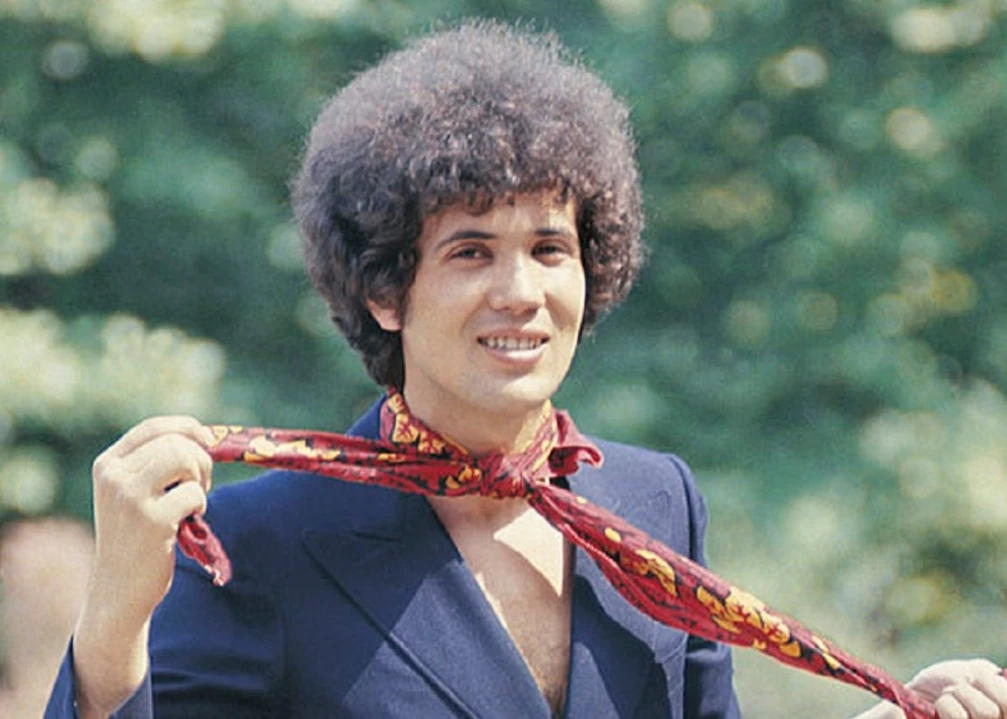On September 25th 2020, one of the most famous Italian singer-songwriters and composers will be reminded through the release of an incredible box set of his greatest gems and B-sides: Lucio Battisti. The collection is entitled “Rarities” and it will be available in two versions, CD and LP, both gathering special comments for each song. Let's step back to know better this amazing artist.
Lucio Battisti was born in 1943 in Poggio Bustone, a small town north of Rome. In 1962 he took his first steps as guitar player in the famous group “I Campioni”, which was based in Milan, so he moved from Rome and spent his life primarily in the Lombardy Region. Even if Battisti had been classified as one of the most influential multi-instrumentalist of that period, his strong passion for singing erupted after the meeting in 1965 with the lyricist Giulio Rapetti, better known as Mogol.
An extraordinary collaboration between the two artists began, giving birth to some of the major hits of the history of Italian music. Probably the first song which had an international success was “Balla Linda” in 1968, in the English version “Bella Linda”: it was performed by “The Grass Roots” and it gained the 28th position in Billboard charts.
That year and the year after were very gratifying for Battisti, who incremented his popularity thanks to the participation in the 17th and 18th Sanremo Festival. Then his first wonderful album entitled “Lucio Battisti” came out and another single became the Summer hit of 1969, “Acqua azzurra, acqua chiara/Dieci ragazze”.
The same summer Lucio founded with Mogol the record label “Numero Uno”, which gathered artists of the caliber of Bruno Lauzi, Edoardo Bennato, Adriano Pappalardo, Oscar Prudente and others.
In the ‘70s Battisti reached the peak of his fame. For several years, his albums ranked the first positions of the national sales charts. In 1973 something unusual happened: the singles “Il mio canto libero” and “Il nostro caro angelo” gained respectively the first and second position of the national sales chart, overcoming international famous songs, such as the Pink Floyd’s “The Dark Side of the Moon” and Elton John’s “Don't Shoot Me I'm Only the Piano Player”.
In 1975 Lucio took a trip in the United States where RCA proposed him to create an album with his greatest successes sung in English. Even if he felt honored for having received this incredible offer, he decided to refuse because he didn’t want to work on songs already released but he wanted to move forward. In fact, during the travel, he absorbed different style musical innovations and registration methods, such as the acoustics of disco music.
Battisti was one of the most important Italian songwriers of that period: a movement that not only changed the Italian music, but also affected the Italian society and cultural system. In reality, the first renowned Italian songwriters dated back to the ’50s, such as Domenico Modugno, Renato Carosone and others. Then, in the ’60s, the French songwriting started to influence some Italian artists, who combined this trend with the Italian folk music: among them Luigi Tenco, Gino Paoli, Sergio Endrigo, Bruno Lauzi, Giorgio Gaber, Enzo Jannacci and Fabrizio De Andrè. In the second half of the decade some others were more persuaded by the “beat”, such as Lucio Dalla, Fred Bongusto, Mino Reitano and Francesco Guccini.
In the ’70s, the political scenary and some American performers like Bob Dylan, Paul Simon e Leonard Cohen affected the musicality of Francesco De Gregori, Antonello Venditti, Rino Gaetano, Roberto Vecchioni, Pierangelo Bertoli, Edoardo Bennato, Tito Schipa Jr., Franco Califano, Franco Battiato, Ivano Fossati and Eugenio Finardi.
Lucio Battisti was the most important of those songwriters who do not used social and political struggles as main topics of their songs (others were Claudio Baglioni, Riccardo Cocciante and Renato Zero) but devoted them primarily to love and feelings. The 22nd anniversary of Battisti’s death will be worthily celebrated with an incredible collection of masterpieces: among them the extended version of “Pensieri e Parole”, “La Farfalla Impazzita” brought to the 1968 Sanremo Festival and other foreign language songs.
This will be the playlist: Pensieri e parole [Extended Version]; Per una lira; Vendo casa; Le formiche; La spada nel cuore; La folle corsa; Perchè dovrei; La farfalla impazzita; Il mio bambino; Les jardines de Septembre; Toujours plus belle; Ma Chanson de libertè; La Colina de las Cerezas; Una Muchacha por Amigo; To Feel in Love; Only.




